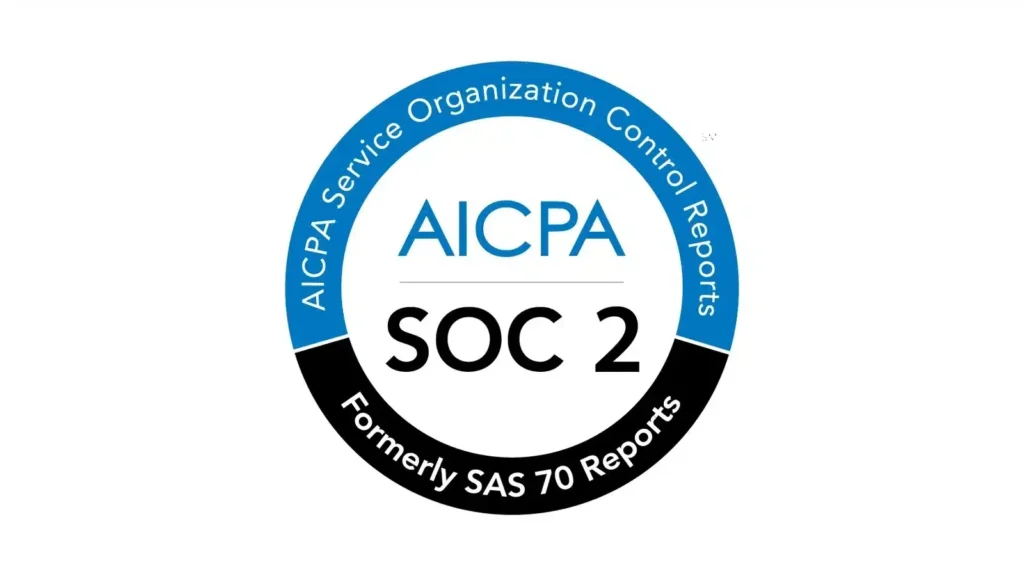-
Solutions
Discover Talent
Access top-tier candidates worldwide with our Global Talent Acquisition and recruitment services.
Employer of Record
Onboard top talent quickly and compliantly with our Employer of Record service.
Manage Employment
Adopt a human-centric approach to employee management, ensuring compliance.
Jump to:
China Facts and Stats
Currency
Chinese Yuan is the official currency of China. Its currency symbol is ¥, CNY.
Employer Costs
Estimated at 31.31% – 42.72% of employees salary.
Onboarding
One week with Emerald Technology.
Languages
Mandarin is the official dialect of China, spoken by more than 70% of the population. However, several hundred languages are spoken across the country.
Population
The population of China is 1.412 billion (based on World Bank numbers as of 2021).
Hiring
Grow your team in China
No entity, no problem
To start growing your team in China, you must establish a local entity- including an account with a local bank, a local office and an address registered as a subsidiary. This
allows you to manage payroll, tax, benefits and compliance for your employees, but can take several months.
Emerald can hire and payroll your workers, quickly and compliantly with their ready to go entity. Make growing your team simple with Emerald as a global partner.
Emerald can hire and payroll your workers, quickly and compliantly with their ready to go entity. Make growing your team simple with Emerald as a global partner.
Pros & Cons of hiring in China
China is developing at an incredibly fast rate and receiving heavy investment. Salaries are competitive within most industries and Chinese citizens are typically well
educated, highly motivated, and ambitious. However, there can often be culture clashes with other countries. Companies need to ensure they are complying with strict local
laws when considering employing a Chinese national.
Why China is good for remote workers
China has a relatively low cost of living compared with other developed countries. However, the country’s working culture has not yet completely adapted to the global trend
of remote working and, in some ways, is still catching up.
Start growing your remote workforce now
Employer Costs
| Pension Fund: | 15% - 16% (varies by region). |
| Health Insurance: | 5.35% - 9.8% (varies by region). |
| Unemployment Fund: | 0.5% - 0.8% (varies by region). |
| Work Injury Fund: | 0.16% - 1.52% (varies by region). |
| Housing Fund: | 8% - 12% (varies by region). |
| Maternity: | 0.8% - 1% (only applicable in certain regions). |
| Disability Fund: | 1.5% - 1.6% (varies by region). |
Benefits
Mandatory Benefits
Pension Insurance.
Medical Insurance.
Unemployment Insurance.
Work-Related Injury Insurance.
Maternity Insurance.
Housing Provident Fund.
Additional Benefits
Some employers like to offer additional benefits to improve employee retention and satisfaction.
Private Health Insurance.
Employment
Contract
Contracts in China must include:
In China, it is a legal requirement to implement a strong employment contract which spells out the terms of the employee’s compensation, benefits, and termination requirements. An offer letter and employment contract in China should always state the salary and any compensation amounts in Chinese Yuan Renminbi rather than a foreign currency.
Probation
The maximum probation period is dependent on the term of the employment contract, as follows:
- Fixed term employment contract up to 1 year: 1 month,
- Fixed term employment contract of 1-3 years: 2 months,
- Fixed term employment contract of 3+ years, or indefinite contract: 6 months,
Emerald Technology can onboard employees in China within 48 hours.
Restrictive Covenants
Insurance
01.
Health Insurance:
Basic health and pension insurance is provided through the national system; however, supplementary health insurance is often supplied by the employer.
02.
Social Security Contributions:
Social security contributions to pension funds, medical funds, etc. are mandatory for Chinese employees. Foreign individuals who hold a China work permit are also required to make social security contributions in relation to pension, medical, unemployment, maternity, and work-related injury. Monthly employer and employee social security contribution rates, and applicable caps, are governed by local jurisdictions and vary quite broadly. For example, contribution rates and caps applicable to Chinese employeesin Shanghai and Beijing are as follows:
Shanghai:
Pension: 8% Employee, 16% Employer,
Medical: 2% Employee, 9.5% Employer,
Unemployment: 0.5% Employee, 0.5% Employer,
Maternity: 0% Employee, 1% Employer,
Work-Related Injury: 0% Employee, 0.16- 1.52% Employer,
Total: 10.5% Employee, 27.16- 28.52% Employer,
Beijing:
Pension: 8% Employee, 16% Employer,
Medical: 2% Employee, 10% Employer,
Unemployment: 0.2% Employee, 0.8% Employer,
Maternity: 0% Employee, 0.8% Employer,
Work-Related Injury: 0% Employee, 0.2-1.9% Employer,
Total: 10.2% Employee, 27.8- 29.5% Employer,
Leave Policy
01.
Maternity Leave:
Pregnant employees are entitled to 98 days of maternity leave, including 15 days of prenatal leave. For multiple births, 15 days’ additional maternity leave will be granted for each additional child. Extended maternity leave is subject to local regulations, but an additional 30 days can usually be granted. Statutory paternity leave in China is 14 days.
02.
Paternity Leave:
Employees are entitled to two days paternity leave that must be used after the birth.
03.
Sickness Leave:
Employees are entitled to a period of medical treatment for illness or non-work related injuries that can vary from 3 to 24 months, depending on cumulative working years and length of service with their current employer. Employees are usually paid 60-100% of their normal wage during their sick leave period, depending on their seniority.
Onboarding
Onboarding
As the legal employer, Emerald Technology requires the following employee documents to ensure complete compliance:
Emerald Technology can onboard employees in China within 48 hours.
Termination
Resignation and Dismissal
When an employer dismisses an employee it must be with just cause and they must give them notice. The notice period starts from the day after the employer notifies the employee of the termination. Notice must be given in accordance with the following schedule at a minimum:
| Notice Periods: | The amount of notice for termination varies with length of service, according to the following schedule:
|
Compensation
Severance
If an employee is made redundant, they are entitled to a payment based on years of continuous service.
| Severance: | In China, severance pay amounts to 1 month’s pay per year of service. Employees who have worked for less than 6 months are entitled to half a month’s pay. If an employee’s monthly salary exceeds 3x the average monthly wages of employees in the municipality where the employer is located, severance will be paid at the rate of 3x the local average monthly wages and cannot be for more than 12 years of work.
|
Time off
Statutory Time off
Employees who have worked at a company for one continuous year are entitled to five days’ annual leave. Where an employee has not taken all of their paid annual leave in a given year, they are permitted to carry over the untaken leave to the next year. If they decline to do this, the employer must compensate this employee with 200% of the employee’s average daily wage for each day of unused annual leave, in addition to their regular daily wage.
Public Holidays
- New Year’s Day
- Spring Festival
- Qingming Festival
- Labor Day
- Dragon Boat Festival
- Mid-Autumn Festival
- National Day
Emerald Technology can onboard employees in China within 48 hours.
Salary / Taxes
Work, Pay and Taxes
01.
Minimum Wage:
Minimum wages are determined by provincial governments, factoring in elements such as the minimum living costs of local employees and their dependents, the urban residents’ consumption price index, the social insurance premiums and the housing funds paid by the employees themselves, the average salary of the employees, the level of local economic development, and the local employment status. Minimum wages in China vary greatly between different provinces, and even between different cities and areas within each province. The highest rates are in Shanghai at 2480 yuan per month / 22 yuan per hour. The lowest are less than half of the highest: the minimum rate in the Huludao and Tieling areas of Liaoning province is 1120 yuan per month / 10.6 yuan per hour. These figures can vary on a monthly basis.
02.
Working Time and Overtime:
The Chinese government stipulates a 5-day work week, typically worked Monday through Friday, which is regulated to no more than 8 hours per day and no more than 44 hours per week. Any work that exceeds 8 hours per day must be paid at 1.5x the employee’s normal salary for a normal work day. Employees who are asked to work at the weekend must be paid 2x salary, and 3x salary on a Chinese national holiday. Overtime is limited to 3 hours on a given day and 36 hours per month.
03.
Salary Payments:
Lorem ipsum dolor sit amet, consectetur adipiscing elit, sed do eiusmod tempor incididunt ut labore et dolore magna aliqua. Ut enim ad minim veniam, quis nostrud exercitation ullamco laboris nisi ut aliquip ex ea commodo consequat. Duis aute irure dolor in reprehenderit in voluptate velit esse cillum dolore eu fugiat nulla pariatur. Excepteur sint occaecat cupidatat non proident, sunt in culpa qui officia deserunt mollit anim id est laborum.
04.
Bonuses in China:
Though not mandatory, in many parts of China, it is customary to pay the salary on a 13-month basis, by incorporating an additional final month that is paid just prior to the Chinese New Year (typically in early February). Many employees expect to receive it and problems may arise if it isn’t offered. This extra month is taxed in the same way as regular earnings. Some companies also provide 14th- and 15th-month bonuses, adjusted according to performance reviews.
05.
Income Tax:
As of 2019, China taxes individuals who reside in the country for more than 183 days on their worldwide earned income. Income Tax is administered on a progressive tax system with tax rates as follows:
Tax rates for residents:
Up to 36,000: 3%,
Next 108,000: 10%,
Next 156,000: 20%,
Next 120,000: 25%,
Next 240,000: 30%,
Next 300,000: 35%,
960,000+: 45%,
Tax rates for non-residents:
Up to 3,000: 3%,
Next 9,000: 10%,
Next 13,000: 20%,
Next 10,000: 25%,
Next 20,000: 30%,
Next 25,000: 35%,
80,000+: 45%,

Worker misclassification in China
Similar to other countries, China has strict rules on classifying individual contractors and full-time employees differently. Misclassifying your workers can put your business at risk of fines.
Enquire about our global hiring solutions
Start a conversation on how we can assist you to grow your remote team.
